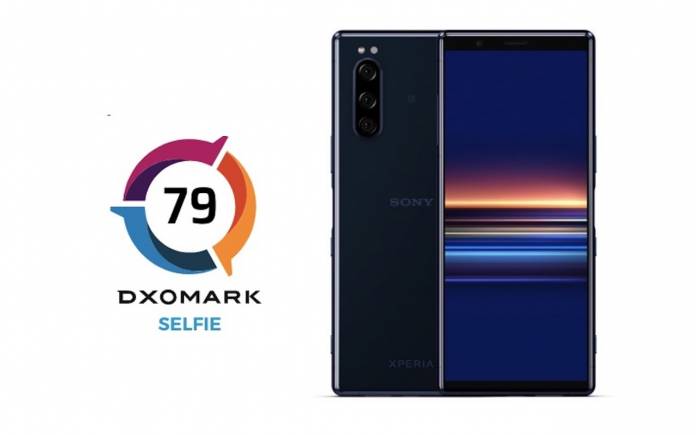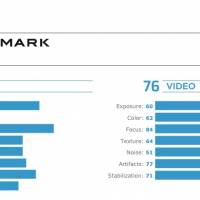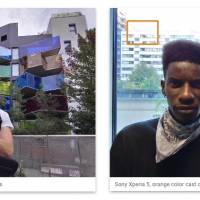
The Sony Xperia 5 was only mentioned here once back in September. It was launched at the IFA 2019 with Alpha and Eye AF technology that are said to deliver high-quality imaging results. The phone is definitely imaging-centric with BIONZ X for mobile, a three rear camera setup, plus a powerful selfie camera. Sony’s compact flagship offering is a more affordable version of the Xperia 1. It already comes with a large 6.1-inch OLED screen, Qualcomm Snapdragon 855 processor, 6GB RAM, and 128GB onboard storage.
The phone also offers IP65/68 dust and water resistance rating. The cameras offer wide, ultra-wide, and telephoto lens shooting. As for the selfie shooter, there is the 8MP 1/4-inch sensor, 24mm f/2.0-aperture lens, and 1080p/30fps video with 5-axis electronic image stabilization (EIS) that is enabled by gyro.
DxOMark has tested the Sony Xperia 5 with a focus on the selfie camera. The company has a different standard and process for the selfie shooter compared to the main camera system. For this purpose, more than 1500 test images have been analyzed. Over two hours of video coverage in outdoor and indoor environments have been checked as well.
Overall Selfie score of the Sony Xperia 5 is 79–81 Photo and 76 Video. The score is far from the top-ranking phone on the Selfie list which is the Samsung Galaxy Note 10+ 5G version.
The Sony Xperia 5 selfies show accurate exposure and excellent focus. They are usually sharp with good brightness. There is generally accurate exposure in both indoors and outdoors, wide depth-of-field focus, wide dynamic range outdoors including bokeh shots, and accurate exposures using flash. Selfie videos also deliver high detail both indoors and outdoors, wide depth-of-field focus, good stabilization, and accurate exposure indoors and outdoors.
Some issues are visible like strong noise in all conditions, limited dynamic range indoors, white balance errors in both environments, bokeh shots failing in depth estimation, plus strong color fringing and hue shift artifacts. Videos show strong color fringing and hue shift artifacts, pink/orange color casts, and noise in all conditions. Moving texture is visible while white balance is unstable.















